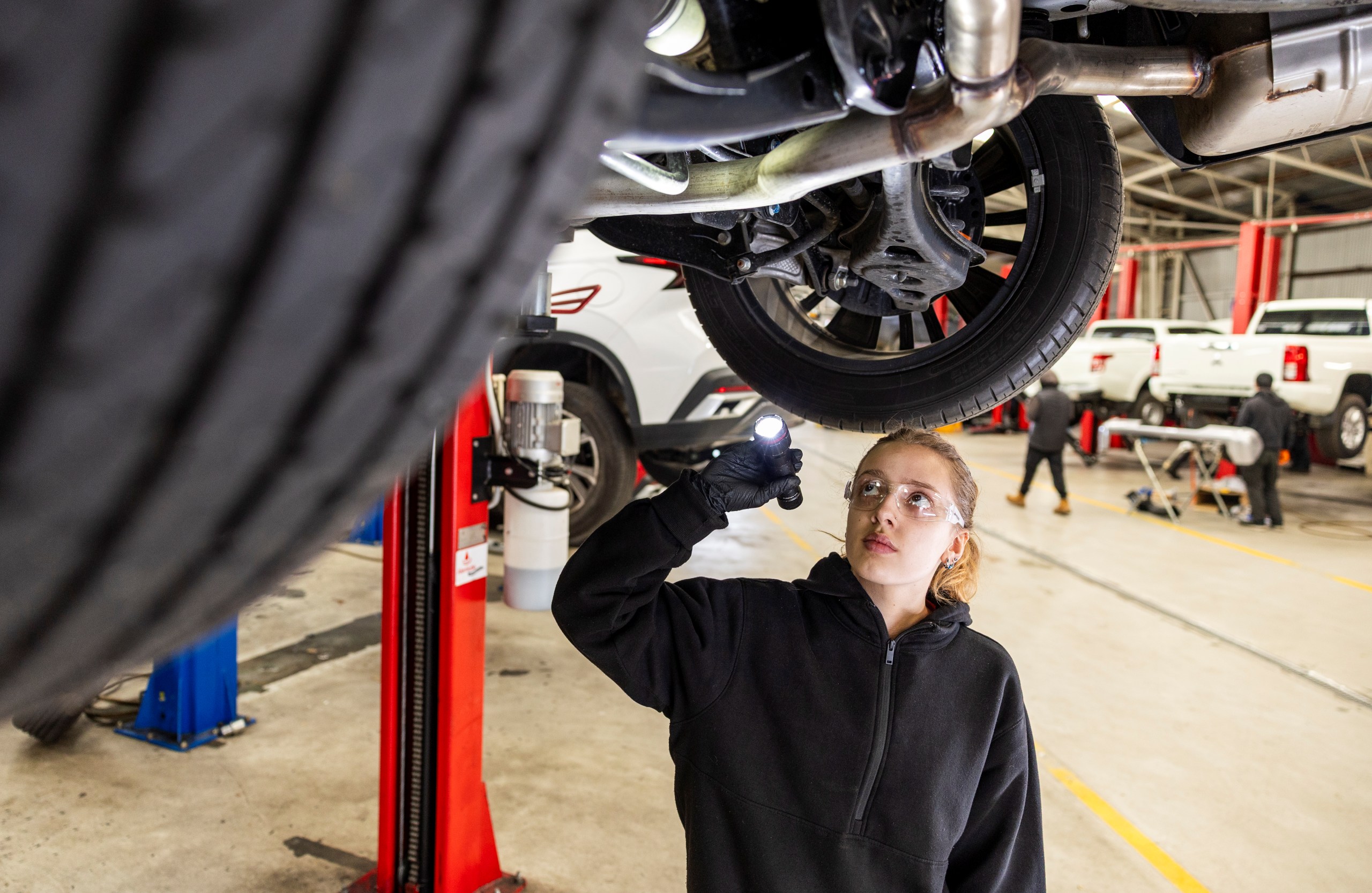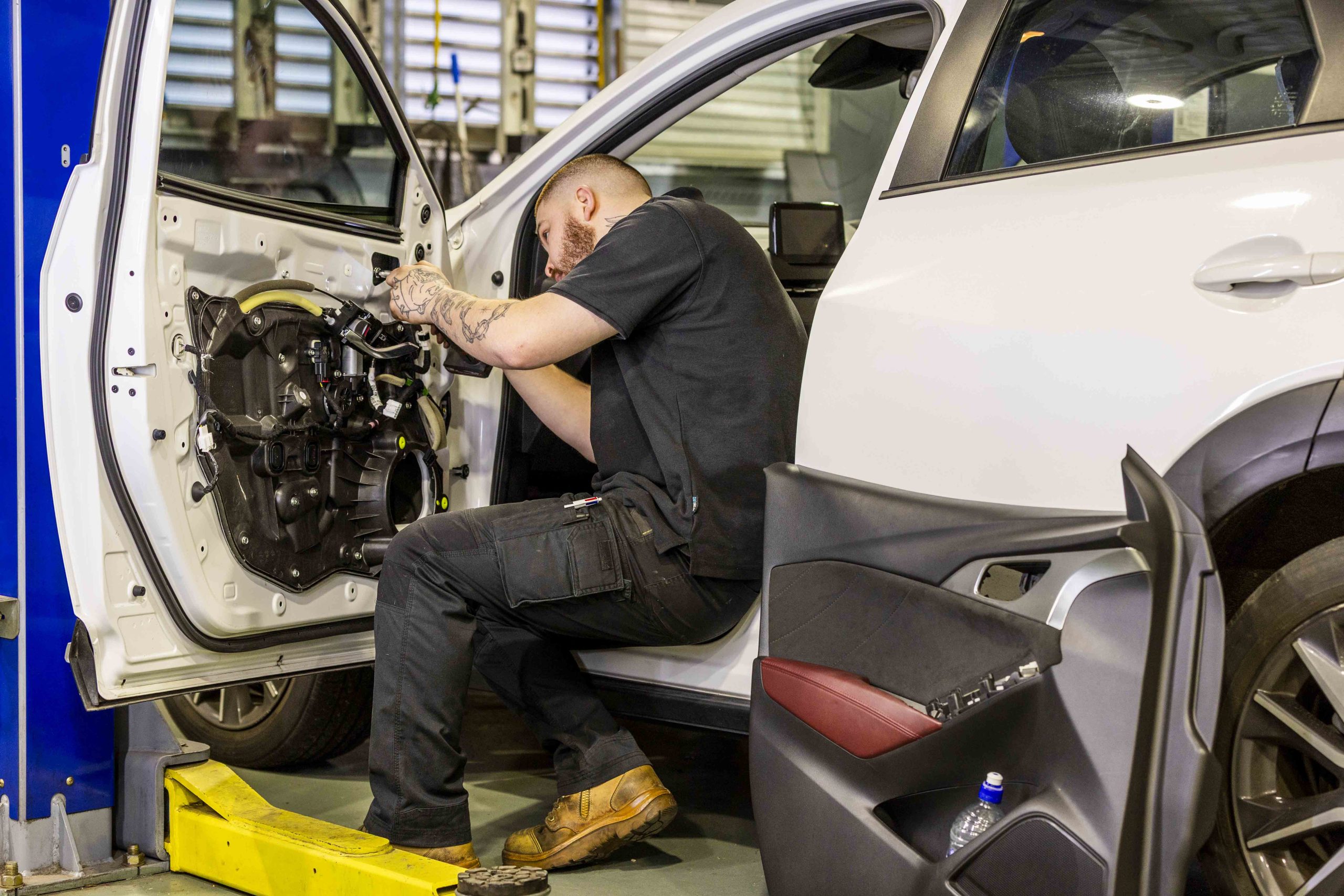WORKPLACE SAFETY & WELLBEING
Your Role in Safety
Everyone has a part to play in safety. For you, that means:
-
Following all OHSE rules and safe work practices
-
Using tools and equipment properly and treating them with care
-
Respecting your co-workers, supervisors, and customers
-
Speaking up if something feels unsafe
By doing your bit, you’re helping create a safer, more supportive workplace for everyone

PPE Requirements
Personal Protective Equipment (PPE) is non-negotiable in the trade. You’ll need to wear steel-capped boots whenever you’re in the workshop or at TAFE. This gear protects you against hazards like heavy tools, sharp edges, and spills, and it’s part of meeting industry safety standards
Support with PPE
At VACC Automotive Apprenticeships, we subsidise PPE Equipment for our apprentices. If you’d like to know more, contact your field manager.

Inductions & Site Safety Rules
On your very first day, you’ll complete a site induction with your Host Business. This covers:
-
Emergency exits, evacuation points, and assembly areas
-
First aid kits, fire wardens, and health & safety reps
-
Site traffic management rules and PPE requirements
-
Who to report hazards or incidents to
This induction is recorded on a checklist and returned to your Field Manager within seven days.

Drug & Alcohol Policy
Working in the automotive industry requires you to be focused, alert, and safe at all times. To protect apprentices, co-workers, and customers, VACC has a zero-tolerance approach to drugs and alcohol at both the workplace and TAFE.
Why It Matters
Drug and alcohol use is a leading cause of workplace accidents in Australia. Even small amounts can slow reaction times, impair judgment, and put you and others at risk. VACC zero tolerance policy exists to keep everyone safe and ensure the workplace runs professionally.
Fit for Work Expectations
You must arrive for work and training fit, alert, and ready to do your job. This means:
-
No alcohol or illicit drugs in your system.
-
No misuse of prescription or over-the-counter medication.
-
Being well rested and able to focus on tasks.
If you’re unsure whether medication could affect your work, speak to your supervisor, doctor, or Field Manager before starting your shift.
-
Random Testing
As part of the policy, apprentices may be subject to random drug and alcohol testing.
-
Tests are carried out by accredited providers.
-
Both workplace and TAFE environments are included.
-
Results are handled confidentially but may be shared with your Host, Field Manager, and relevant authorities if required.
-
Consequences of Non-Compliance
A positive test, refusal to take a test, or being found unfit for work can lead to:
-
Being stood down from work immediately.
-
Formal disciplinary action by VACC/TACC.
-
In serious cases, suspension or cancellation of your apprenticeship contract.
The aim is prevention, not punishment—but safety must always come first.
-
Wellbeing Support
Your safety also includes mental and financial wellbeing. Support services include:
ADA “Friendly Ear” helpline
A free, 24/7 confidential service run by people with lived experience of mental health and substance issues.
Contact our helplineLife Skills Program
We provide workshops to help apprentices understand safety in the workplace, build finnacial wellbeing and general life advice.
Learn MoreReporting Hazards & Incidents
Safety issues can happen in any workshop, from minor hazards to serious incidents. Reporting them quickly ensures problems are fixed, accidents are prevented, and everyone has a safer place to work.
What to Report
You should report:
-
Unsafe equipment, tools, or work practices.
-
Hazards like spills, trip hazards, or faulty machinery.
-
“Near misses” where an accident almost happened.
-
Any injury, no matter how minor.
If you’re not sure, report it anyway – it’s always better to be safe.
-
Reporting Process
Follow these steps if you notice a hazard or incident:
-
Notify your supervisor immediately.
-
Tell your Field Manager, who will record the issue.
-
Complete an incident report form if required.
-
For serious cases, WorkSafe may also need to be informed.
-
What Happens After
Once a hazard or incident is reported:
-
The issue is investigated by your Host Business and Field Manager.
-
Corrective action is taken, such as repairs, training, or changes in procedure.
-
Your Field Manager will check in to ensure the problem has been fixed.
-
Your Responsibility
As an apprentice, you play a key role in safety:
-
Report issues quickly and honestly.
-
Cooperate with investigations and follow-up.
-
Keep using safe practices every day.
Remember: reporting isn’t about blame – it’s about making sure everyone goes home safe at the end of the day.
-